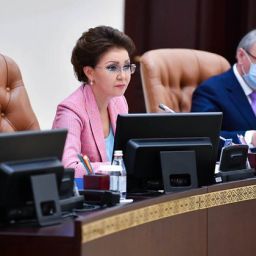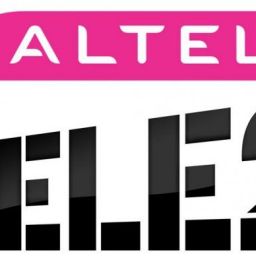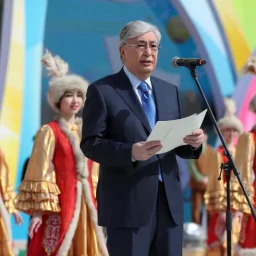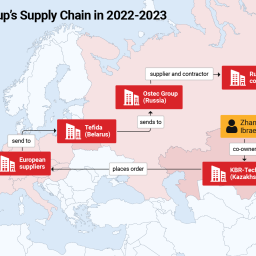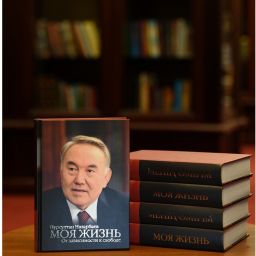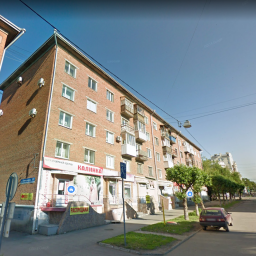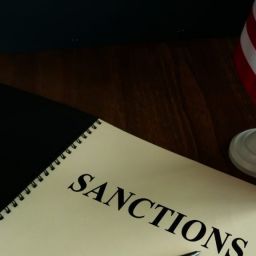Glencore is under investigation by the US Department of Justice in relation to potential violations of bribery and corruption laws. The allegations relate primarily to Glencore’s operations in the Democratic Republic of Congo (DRC).
Glencore’s shares have significantly underperformed its peer group in 2018 due to market concerns about alleged corruption and governance. However, it appears that the DRC allegations are only the tip of the iceberg. The evidence presented in this report suggests that Glencore’s dealings in Kazakhstan are even more troubling than in the DRC and could expose the company to potentially enormous liabilities.
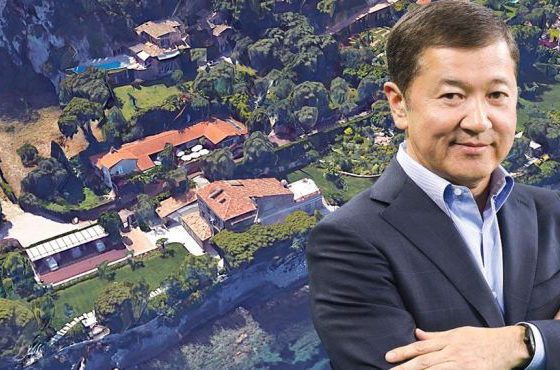
- Glencore’s local partner in Kazakhstan is Bulat Utemuratov, a billionaire who has held numerous government roles including adviser to the President and head of the President’s private office. It has been stated publicly, including in US Diplomatic cables, that a corrupt relationship exists between Utemuratov and Kazakhstan’s President Nazarbayev. Utemuratov has been described as “consigliere” and “personal financial manager” to the President.
- The parallels between Glencore’s relationship with Dan Gertler in the DRC and Bulat Utemuratov in Kazakhstan are striking. This report suggests that shareholders should have serious concerns about the legitimacy and legality of Glencore’s partnership with Utemuratov.
Potential Fraud and Corruption
- Glencore and Utemuratov, via his investment vehicle Verny Capital, have done a series of deals that have transferred vast wealth to the Kazakh oligarch at the expense of shareholders. In 2008, Glencore’s Kazzinc subsidiary acquired 40% of the Vasilkovskoye gold mine from Verny Capital for $300 million. Glencore also appears to have secretly given Verny nearly one-third of Kazzinc’s shares at a time when Utemuratov was chief of staff to the Kazakh President. This unreported transaction was worth hundreds of millions of dollars to Utemuratov.
- In 2010, Glencore bought the remaining 60% of Vasilkovskoye from Verny in a deal that valued Kazzinc at $5.1 billion — a lOx increase in value over 5 years. In 2011, Glencore launched its initial public offering in London with a market capitalization of $60 billion. As part of the IPO, Glencore agreed to buy back shares in Kazzinc from Verny in a deal that valued Kazzinc at $7.6 billion, or 12.5% of Glencore’s IPO market cap. The deal was finally completed in 2012 at a slightly lower valuation.
- Through this series of share swaps between related parties, we can see that Glencore was able to significantly increase the valuation of its Kazakh assets:
| Valuations | Kazzinc | Vasilkovskoye |
| 2005 | $500m | $54m |
| 2008 | $lbn | $750m |
| 2010 | $5.1bn | $1.9bn |
| 2011 | $7.6bn | n/a |
| 2012 | $7.2bn | n/a |
- The valuation increases attributed to Glencore’s assets in Kazakhstan are not supported by logic.
Between 2005 and 2012, Kazzinc’s valuation rose more than 1,300% from $500 million to $7.3 billion while operating income rose 50% to $2.9 billion between 2007 and 2012. Gross profit fell by 23% to $800 million and net profits were down 50% to $329 million in the same period. There was, therefore, no significant change in earnings that could justify Kazzinc’s meteoric increase in valuation. Instead, the increase appears to have been achieved by flipping assets between related parties. The extent of the overvaluation was demonstrated just four months after the 2012 transaction when Verny sold its remaining stake in Kazzinc to the Kazakh sovereign wealth fund. That deal valued Kazzinc at $5.6 billion, a drop of 22% compared to what Glencore paid just a few months before. - The Vasilkovskoye transaction raises serious questions about whether Glencore fraudulently inflated the value of its assets in the run up to its IPO.
The deal also transferred a vast amount of money to Utemuratov at a time when he was an advisor to President Nazarbayev and managing the President’s affairs. We estimate that Utemuratov and Verny made about $3.5 billion from Vasilkovskoye — an asset that is currently valued at roughly half that amount. - Utemuratov (via Verny Capital) and Glencore acquired another asset called Orion Minerals in 2013 for $200 million. The following year, Glencore bought Vern/s 10.5% stake in Orion for $36.5 million in cash and gave Verny one of Orion’s gold mines, which represented roughly 42% of Orion’s assets. As a result of this asset swap, Glencore paid a total consideration of $239 million for a gold mine that it sold three years later for $100 million. Meanwhile, Utemuratov made a cash profit of $16 million and received an asset that is now worth approximately $300 million.
- The Orion asset swap was not disclosed to Glencore shareholders. The deal is such poor value for Glencore shareholders it raises questions about whether the company was secretly transferring wealth to its politically-connected sponsor in Kazakhstan in order to keep doing business in the country.
- The questionable deals between Glencore and Utemuratov continue to this day.
Glencore has provided $250 million of financing to Utemuratov for the construction of a commercial real estate project in Astana called Talan Towers. The loan’s interest rate is 4%, which is substantially below market rates. Our calculations suggest that the interest rate given to Utemuratov is now less than Glencore’s own cost of financing, implying that shareholders have been subsidizing a Kazakh billionaire in a non-core, high-risk real estate project. - During the period of the Talan Towers loan (2014-), Glencore has been under significant pressure to reduce its debt levels.
Concern over leverage led to the company pledging to reduce debt by $10 billion by issuing new shares, cutting its dividend, mothballing mines, cutting capital expenditure and selling assets. While Glencore was undertaking these crisis measures, the company was also loaning money to a commercial property development at a huge discount to market rates. We conclude that this undisclosed and related-party transaction was driven by motives beyond shareholder returns. Our suspicion is that it was done to enrich Utemuratov and gain favor with President Nazarbayev. - Glencore has spent $23 million of shareholder funds to buy a private school in Astana, Kazakhstan.
The company immediately wrote off this investment and subsequently transferred its shares in the school to Bulat Utemuratov’s charity for no consideration. This deal cannot be considered a charitable venture given that the school caters to the children of Kazakhstan’s elite and charges fees of up to $20,000 a year (Kazakhstan’s average GDP per capita is $10,800). It is difficult to draw any other conclusion from this transaction than Glencore was buying influence and favors in Kazakhstan, particularly given that the other major shareholder in Haileybury Astana was President Nazarbayev’s personal charity.
- The deals between Glencore and Utemuratov are non-sensical, value destructive for investors and raise the possibility that Glencore has been secretly transferring wealth to its local fixer in order to buy favors and influence in Kazakhstan.
The US Foreign Corrupt Practices Act (FCPA) states that payments (deemed to be anything of value) intended to induce or influence a foreign official is a violation of the law. The UK Bribery Act is broader in scope and includes all bribery, including to private citizens.
